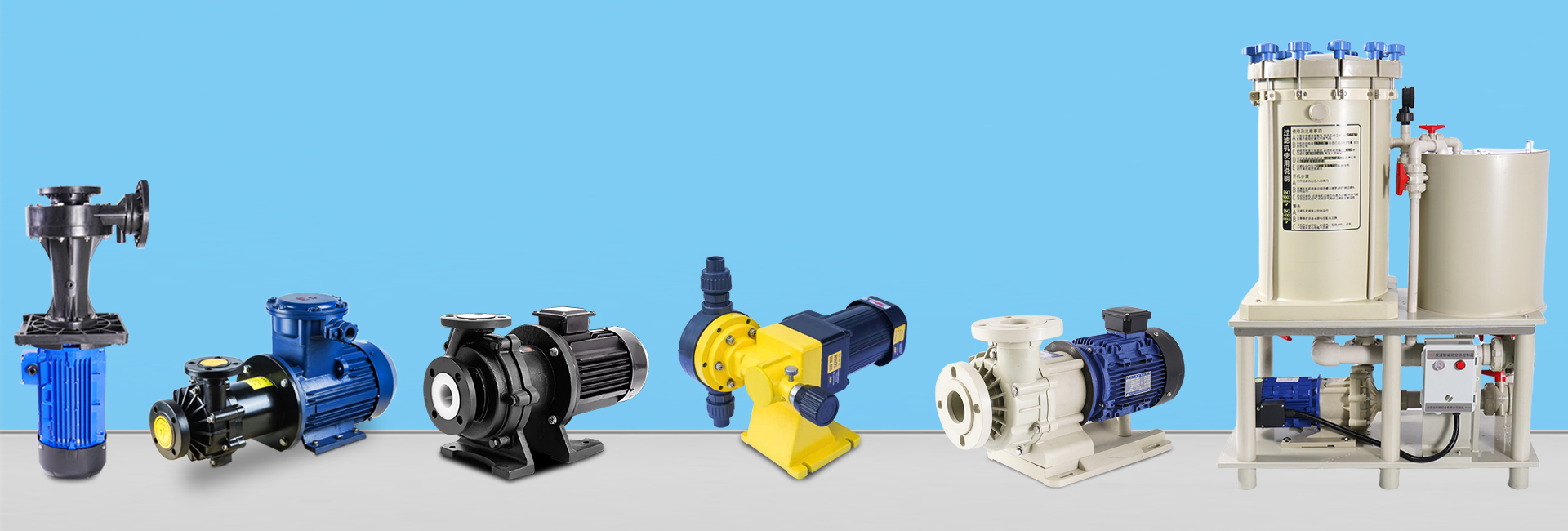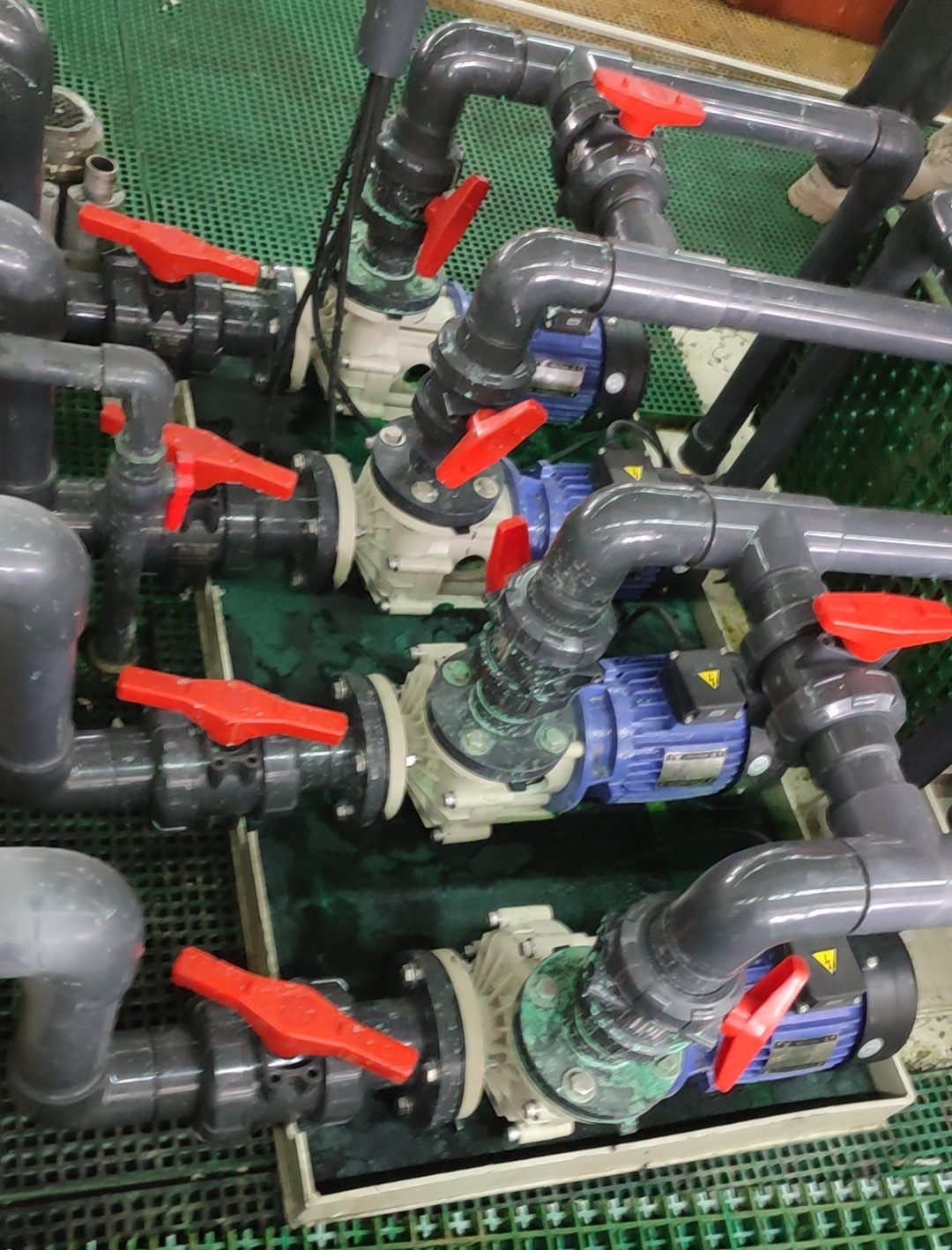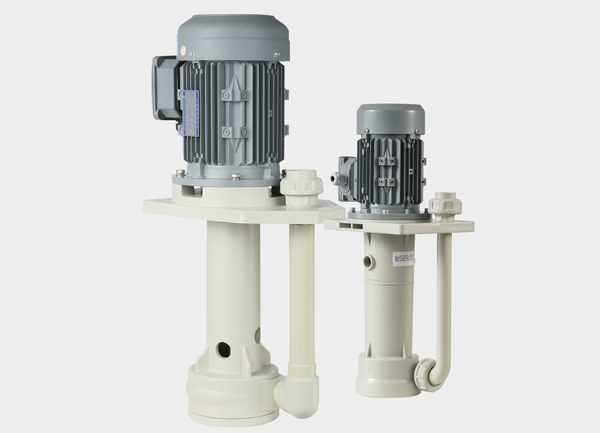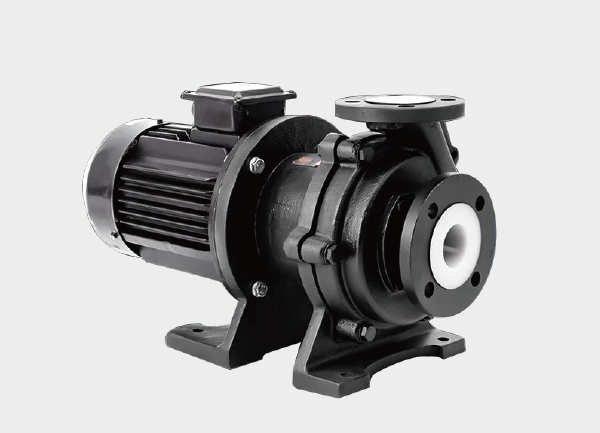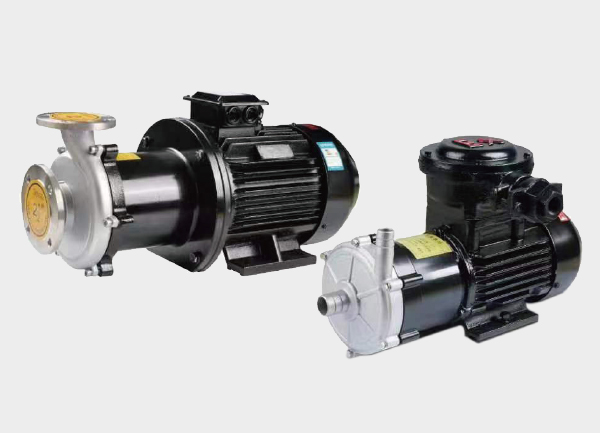Sealless chemical pumps are a class of advanced fluid transfer equipment specifically designed to eliminate the risk of mechanical seal leakage. They include magnetic drive pumps, canned motor pumps, and diaphragm pumps. Known for their zero-leakage safety, strong corrosion resistance, and low maintenance cost, these pumps are widely used in industries such as chemical processing, pharmaceuticals, petroleum, and environmental protection.
This article provides a comprehensive overview of their working principles, types, materials, cost advantages, and selection guidelines.
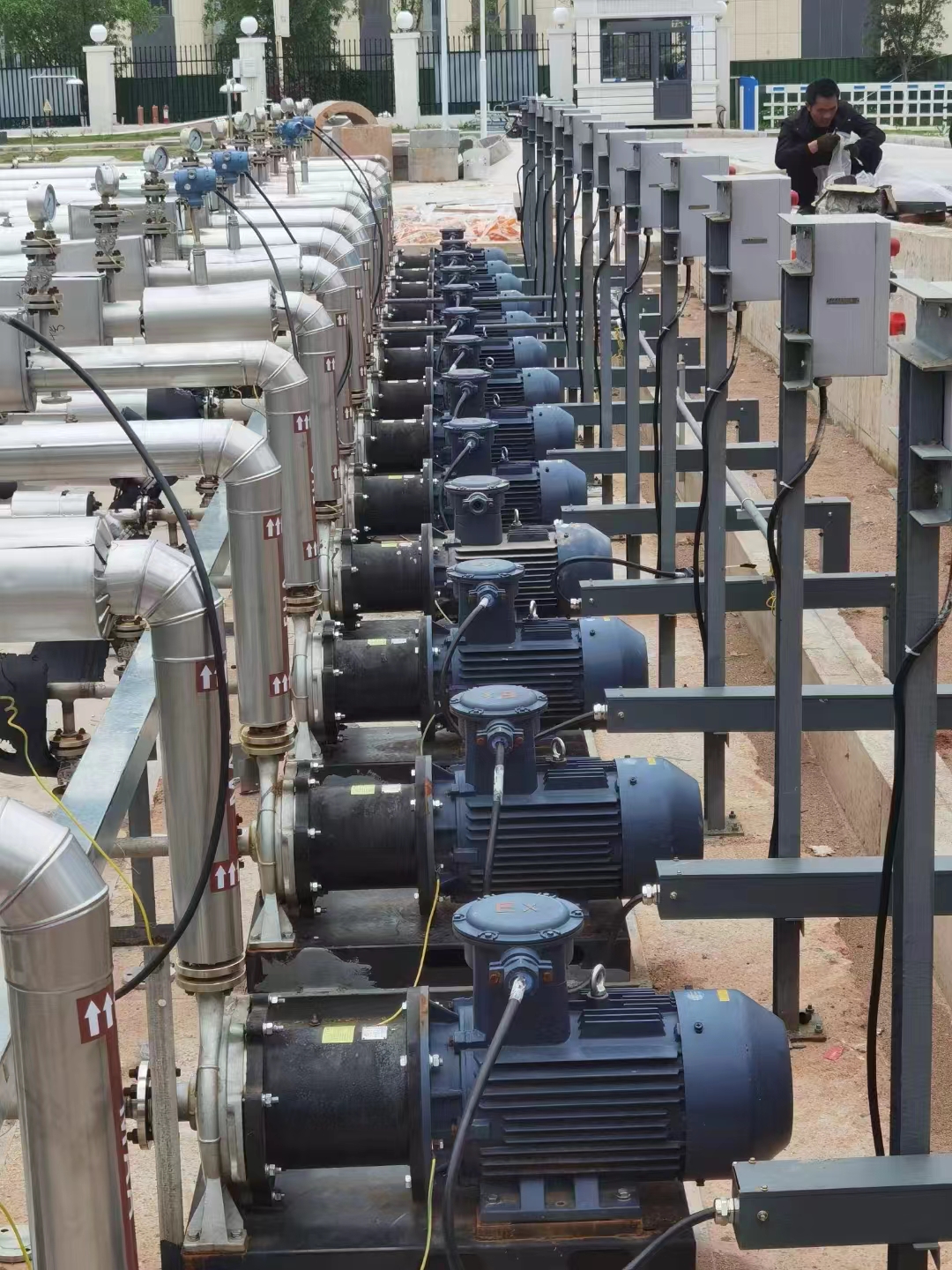
1. Core Technology and Structural Principles
The “sealless” feature of these chemical pumps is achieved through unique power transmission or isolation mechanisms, typically categorized into three main technologies:
(1) Magnetic Drive Coupling
A magnetic drive pump uses an external magnetic rotor driven by the motor to transmit torque through a magnetic field to an internal rotor that drives the impeller.
This design completely eliminates traditional mechanical seals, preventing leakage at the source.
For example, Yongqiu’s vertical magnetic drive pump uses high-performance rare-earth magnets, maintaining 95–98% transmission efficiency even under high temperature or high-viscosity conditions.
(2) Canned Motor Isolation
In a canned motor pump, both the stator and rotor of the motor are sealed within metal isolation sleeves. The pumped liquid is completely contained inside the pump housing.
When current energizes the stator windings, electromagnetic energy penetrates the can to drive the rotor — achieving a fully enclosed, leak-free pump-motor system.
For instance, Flowserve’s INNOMAG series features a patented thrust balance design that reduces lubrication dependence by 90% and can handle liquids containing up to 30% solids.
(3) Diaphragm Isolation
A diaphragm pump uses a flexible diaphragm that moves back and forth to displace liquid, ensuring the medium never contacts the drive mechanism.
It operates without seals or magnets, making it ideal for high-viscosity, particle-laden, or highly corrosive fluids, such as sludge transfer in wastewater treatment.
2. Main Types and Performance Characteristics
Magnetic Drive Pumps
Advantages:
Seal-free structure ensures complete leakage prevention
Excellent corrosion resistance for strong acids and alkalis
Maintenance cost is only about one-third of a conventional pump
Applications:
Used for hazardous chemical transfers, such as yellow phosphorus or concentrated sulfuric acid in reactors, and sterile pharmaceutical fluid handling.
Limitations:
Not suitable for high solid concentrations; high-temperature models (up to 300 °C) require SmCo magnetic materials, which are costlier.
Canned Motor Pumps
Advantages:
Compact and fully enclosed structure
Capable of handling high-pressure and high-temperature fluids (≤400 °C)
Applications:
Widely used in petrochemical plants for heat transfer oil, and nuclear facilities for radioactive fluid transfer.
Limitations:
Slightly lower efficiency (5–10% less than standard centrifugal pumps) and more complex maintenance due to full enclosure.
Diaphragm Pumps
Advantages:
Handles slurries, solids, and viscous fluids
Generates no shear force, protecting sensitive materials
Applications:
Ideal for sludge handling in wastewater plants and viscous food transfers such as jam or syrup.
Limitations:
Relatively low flow rate; diaphragms require periodic replacement; unsuitable for high-pressure operations.
3. Key Materials and Application Adaptability
The corrosion resistance and reliability of a sealless chemical pump largely depend on the materials used for its wetted parts and key components.
Corrosion-Resistant Materials
Metal Alloys: Hastelloy C and titanium alloys handle aggressive media like 98% sulfuric acid, while CD4MCu duplex stainless steel resists chloride attack.
Non-Metal Materials: PTFE linings are excellent for hydrochloric acid and caustic soda. Silicon carbide (SiC) bearings offer superior wear resistance and self-lubrication at up to 500 °C.
Specialized Designs: The Xiaojiuren magnetic pump uses a ceramic containment shell resistant to aqua regia, with electropolished surfaces (Ra ≤ 0.8 μm) that meet GMP pharmaceutical standards.
Extreme Operating Conditions
High Temperature: Equipped with cooling jackets and SmCo magnets, these pumps can transfer molten salts at 300 °C for over 10,000 hours without leakage.
High Solids: INNOMAG pumps handle up to 30% solids with optimized flow channels.
Deep-Tank Operations: Vertical magnetic pumps can reach 18 m immersion depth, ideal for isolating reactive materials like yellow phosphorus from air.
4. Economic Efficiency and Maintenance
Although the initial investment for sealless chemical pumps is 30–50% higher than traditional mechanical seal pumps, their lifetime cost advantages are significant.
Lifecycle Cost Savings:
Yongqiu NVMD vertical magnetic pumps reduced maintenance expenses by 58% over five years, eliminating downtime due to leakage.
Xiaojiuren magnetic pumps last 2–3 times longer than conventional ones, saving over 50% in total operating costs.Smart Monitoring and Predictive Maintenance:
Modern pumps include condition monitoring systems that instantly detect containment shell damage and trigger leak alarms.
Some chlorine-alkali plants use automatic flushing systems that extend continuous operation cycles from 3 months to 12 months.
Non-contact sensors monitor bearing temperature and vibration for predictive maintenance.Easy Maintenance Design:
Magnetic drive pumps require lubrication replacement only once every two years.
Canned motor pumps feature modular assemblies that can be rebuilt in 30 minutes.
INNOMAG pumps eliminate ball bearings, allowing quick maintenance with a single wrench.
5. Industrial Applications and Case Studies
Chemical Industry:
Vertical magnetic pumps handle liquid phosphorus safely by operating below the fluid surface, preventing spontaneous ignition.
Canned motor pumps manage chlorinated wastewater in caustic soda plants, preventing chlorine gas leakage.Pharmaceutical & Food Industry:
Magnetically driven pumps with electropolished flow paths (Ra ≤ 0.8 μm) support CIP/SIP sterilization, ensuring sterile fluid transfer.
Diaphragm pumps handle dairy and protein fluids without damaging their structure.Environmental & Energy Sector:
Corrosion-resistant magnetic pumps (SiC bearings + 50 μm pre-filtration) achieve 8,000 hours of trouble-free operation in leachate treatment.
High-temperature canned motor pumps are used in solar thermal power plants for 400 °C heat transfer oil circulation.
6. Selection Guidelines
By Fluid Type:
For highly corrosive fluids, choose magnetic drive pumps (PTFE lining + Hastelloy containment shell).
For solid-laden liquids, choose diaphragm or INNOMAG canned pumps.By Temperature and Pressure:
For T > 200 °C, use canned or high-temperature magnetic pumps (SmCo magnets).
For P > 10 MPa, select custom multistage canned pumps.By Maintenance Requirements:
For unattended or continuous operations, choose magnetic drive pumps (maintenance-free).
For frequent start-stop cycles, diaphragm pumps are preferred due to their dry-run capability.
Conclusion
Sealless chemical pumps represent a major advancement in industrial fluid handling, combining mechanical innovation and material science to achieve true zero-leakage performance.
As environmental regulations tighten and smart manufacturing technologies evolve, the advantages of long service life, high safety, and low maintenance make sealless pumps an increasingly essential choice for high-risk chemical and industrial processes.

